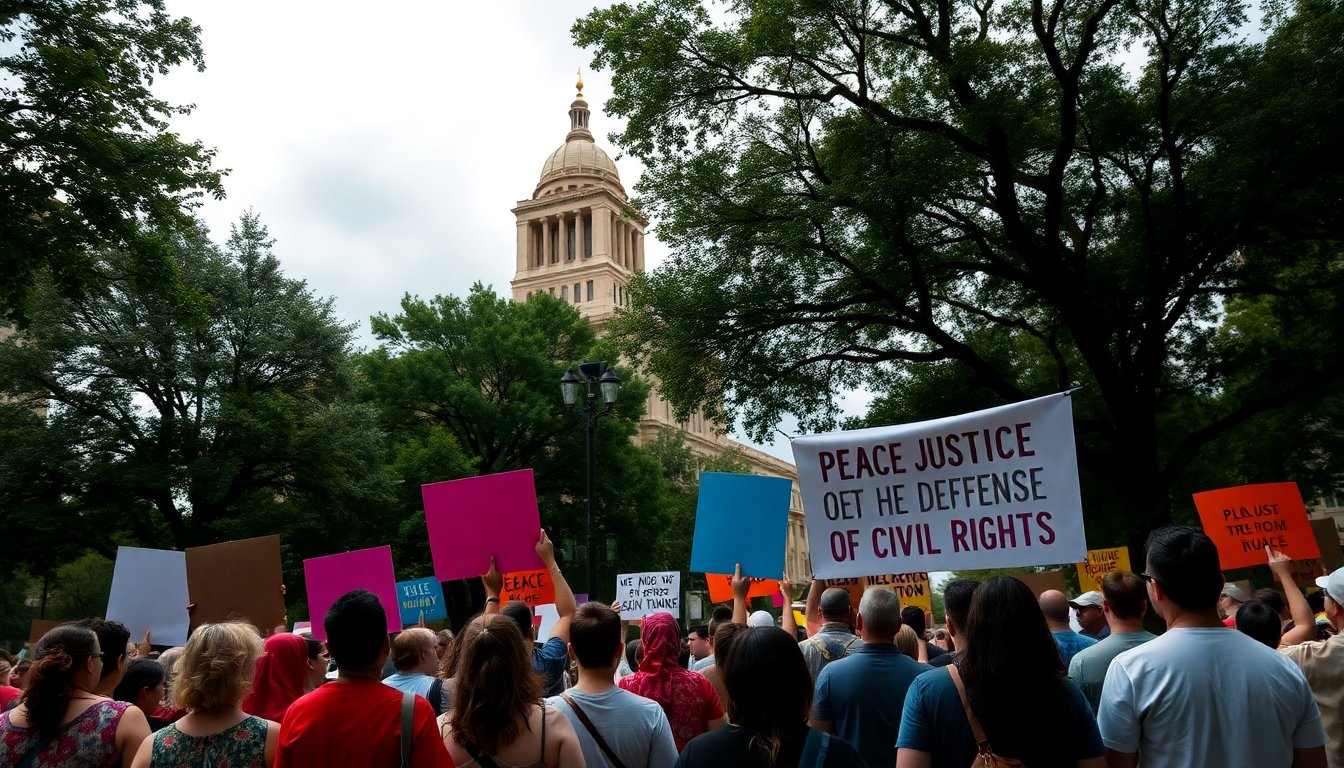Table of Contents
In a recent move that has sparked significant controversy, Texas Governor Greg Abbott has officially categorized the Council on American-Islamic Relations (CAIR) and the Muslim Brotherhood as terrorist organizations. This proclamation has prompted condemnation from various Muslim and interfaith leaders, who argue that the designation is unfounded and poses a threat to civil rights within the state.
The proclamation does not carry the same weight as a federal designation, as only the U.S. State Department can classify a group as a Foreign Terrorist Organization (FTO). However, the implications at the state level are concerning for CAIR, which has worked for over three decades to advocate for the rights of Muslims in America. In response to this declaration, the organization has initiated legal proceedings against the state.
Reactions from the community
During a press conference in Dallas, leaders from multiple Muslim organizations strongly condemned Abbott’s proclamation. They described the labeling of CAIR as defamatory and dangerous, asserting that it misrepresents the organization’s mission and activities. Mustaffa Carroll, the executive director of CAIR Dallas Fort Worth, stated, “The governor is attempting to punish the nation’s largest Muslim civil rights and advocacy organization simply because he disagrees with its protected First Amendment rights.” Carroll emphasized that the legal action against the state is based on the violation of constitutional protections.
Furthermore, Marium Uddin from the Muslim Legal Defense Fund highlighted CAIR’s long-standing history of condemning violence, including acts by groups like Hamas. Uddin insisted that rhetoric surrounding terrorism is often used to create a narrative of fear surrounding the Muslim community, which she described as a tired playbook aimed at stoking prejudices.
Support from interfaith leaders
The backlash against Abbott’s proclamation is not limited to the Muslim community. Interfaith leaders, including representatives from Jewish organizations, have expressed solidarity with CAIR. Deborah Armintor from Jewish Voice for Peace remarked, “We stand steadfast in solidarity with our comrades in CAIR and in unwavering support in their lawsuit against Abbott’s false and unconstitutional proclamation.” This alliance reflects a growing recognition of the importance of protecting civil rights across different faith communities.
Democratic State Representative Terry Meza also joined the chorus of voices calling for a retraction. She labeled the governor’s remarks as not only incorrect but also dangerous, highlighting the potential risks posed to the Muslim community in Texas. The ongoing lawsuit against Abbott’s designation underscores the contentious nature of this issue and its implications for civil rights.
Legal ramifications and future implications
The legal proceedings initiated by CAIR challenge the governor’s authority to make such a designation without federal support. CAIR argues that terrorism designations should fall under federal jurisdiction, contending that Abbott’s actions overstep legal boundaries. The lawsuit claims that the governor’s proclamation infringes upon their First Amendment rights and due process protections.
As the legal battle unfolds, the ramifications of Abbott’s declaration extend beyond the courtroom. The proclamation includes provisions that prevent CAIR from acquiring land in Texas—a move that could significantly hinder the organization’s ability to operate and serve the community. Abbott’s directive also initiates criminal investigations into CAIR, although specifics regarding evidence of wrongdoing remain unsubstantiated.
Broader implications for civil rights
The situation surrounding Governor Abbott’s proclamation raises critical questions about the intersection of politics, religious freedom, and civil rights. As more voices join the call for retraction, the potential impact on the Muslim community and interfaith relations in Texas remains uncertain. The response from various faith leaders indicates a united front against perceived injustices and a commitment to uphold constitutional protections for all citizens, regardless of their faith.
The unfolding events in Texas serve as a reminder of the delicate balance between national security concerns and the protection of civil liberties. As the legal dispute progresses, attention will focus on the implications of Abbott’s proclamation and the broader dialogue it ignites regarding civil rights in America.


